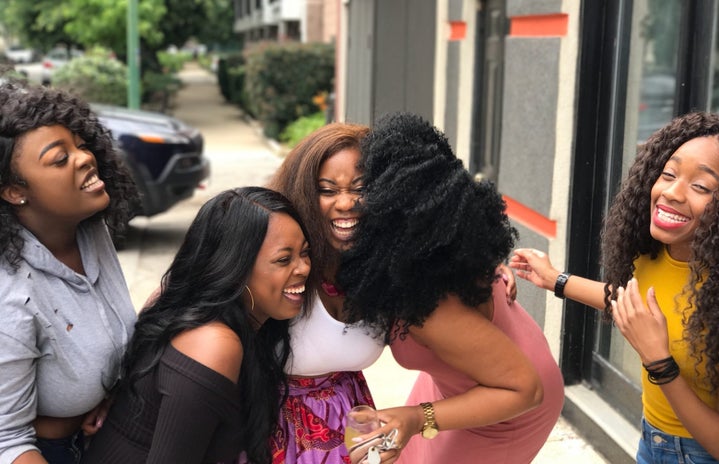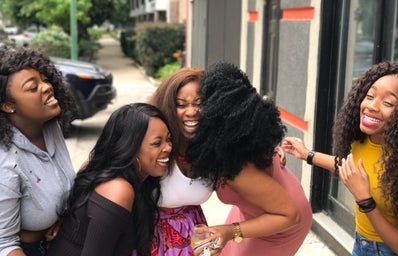Lena Kennard struggled to befriend other Black women on campus before becoming secretary of Black Women United at Texas State.
“In all of my classes there were only a handful of girls that looked like me, if any at all,” she said.
Society has conditioned many young adults to expect college to be a time of fun and creating their “found family.” But what does this mean for students who find it challenging to build relationships and grow with those who share similar values and cultural experiences?
Kennard believes that for Black women, it can negatively affect their health.
“If you’re constantly in an environment where you feel like you don’t belong, or like there’s not a place for you, I think it can lead to depression, social isolation, and academic performance issues,” she said.
She believes that having a supportive community can help Black women navigate their identity and affirm their cultural heritage in a space where they may not otherwise see it reflected. It also creates a safe space where shared experiences can be validated, she said.
Cristin Smith, president of Texas State’s Black Women United, advises students to get out of their comfort zones and become involved in a campus organization.
“If you’re not involved on campus, college would just be boring,” she said.
Smith thinks it’s better to be part of a community, rather than just going to class. Her philosophy is that when you’re a part of something, you create the opportunity to ask for advice and count on others.
Black Women United is about creating friendships that have the potential to exist after graduation, Smith said.
“Our organization is basically just a sisterhood for Black girls on campus,” she said.
As someone who’s been a member since her sophomore year, Smith feels it has helped her become the person she is today.
As president, she believes it’s about contributing to the creation of an environment that feels like home, a safe space.
Now a senior, she wants other Black students to know that she understands how lonely it may feel when you don’t have other Black people in your circle, but her advice is one rooted in reassurance.
“Be confident and know that it’ll all work out,” Smith said.
Mak’hi Falkquay, parliamentarian of Black Women United, thinks students don’t have to compromise on who they are to try and fit in with a crowd that doesn’t look like them.
“I’m a part of the executive board of Black Women United because I want to be able to create a comfortable environment for Black women on campus,” she said.
Kennard is ultimately happy she decided to become involved on campus. Though she initially had a rough time cultivating the friendships and connections she wanted, she now enjoys the sense of family Black Women United has given her. Being a member has helped her become a part of something bigger than herself, she said.
“Experiencing college with so many beautiful and intelligent Black women by my side truly means a lot to me,” she said.
Black Women United might not be your cup of tea, but there are other organizations on campus for students seeking out Black community. Whether you find a home at Texas State’s Black Student Alliance or with the Black Presidents’ Council, know others are seeking the same sense of familiarity and warmth you’re after.
What you’re looking for is looking for you too. So no matter how out of place you may feel from time to time, know, you’re not alone, Black girl.


